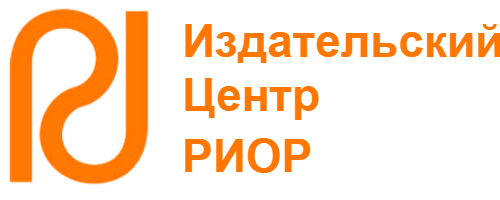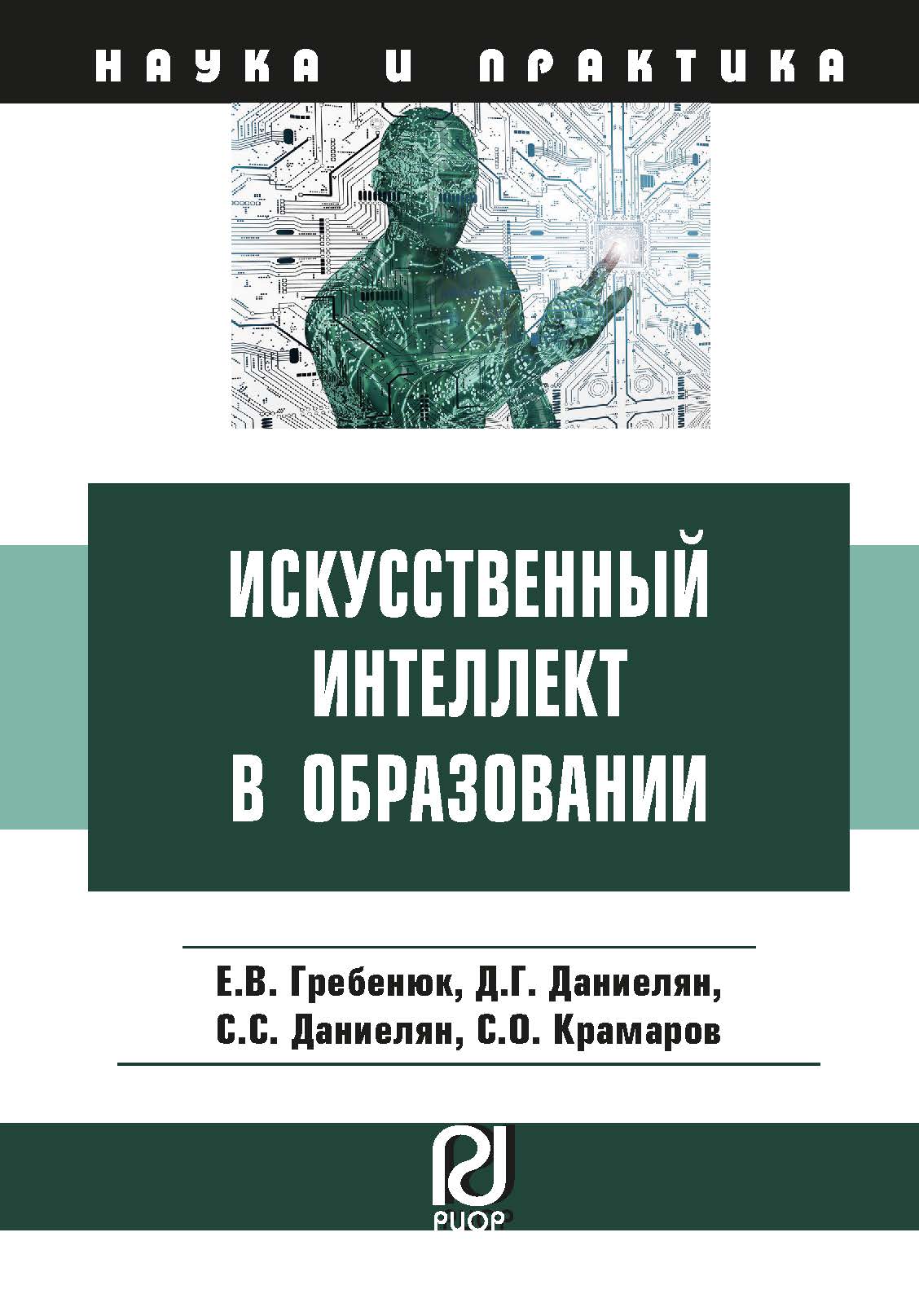from 01.01.2011 to 01.01.2024 Surgut, Khanty-Mansiysk, Russian Federation
employee
Stanitsa Egorlykskaya, Rostov-on-Don, Russian Federation
employee
Stanitsa Egorlykskaya, Rostov-on-Don, Russian Federation
Rostov-na-Donu, Rostov-on-Don, Russian Federation
UDC 004.853
UDC 004.8
UDC 37
The training and practical manual covers the main concepts and methods of utilizing artificial intelligence (AI) technologies in educational activities. The primary goal of this work is to provide educators in educational institutions with knowledge about the possibilities of applying AI in teaching, as well as practical recommendations for integrating these technologies into classroom activities. The publication is designed to develop educators' competencies in the field of artificial intelligence to enhance the quality of teaching and student performance. The book describes the use of AI to create personalized educational pathways for learners, tailored to the needs and abilities of each student, and offers ready-made solutions, examples, and methodological recommendations for implementing AI across various subject areas in education. Educators (teachers) in regional educational institutions, including rural communities, should play a central role in this process. The training manual is intended to improve the qualifications of pedagogical staff in educational institutions who are interested in increasing the effectiveness of the educational process through the use of advanced AI technologies.
Artificial Intelligence (AI), Education, Pedagogy, Learning Methods, Technology in Education, Personalized Learning, Educational Systems, Digital Technologies, Innovations in Education, Recommendations for Educators, Learning Automation, Data Analysis in Education, Development of Critical Thinking, Learning Effectiveness, Interactive Learning, AI-Enhanced Learning Course, Ethical Aspects of AI in Education.
1. Adler, Yu.P. Algoritmicheski nerazreshimye zadachi i iskusstvennyy intellekt / L.I. Abalkin // Ekonomika i upravlenie: problemy, resheniya. – 2018. — № 4. – S. 17-24.
2. Ak'yulov, R.I., Skovpen', A.A. Rol' iskusstvennogo intellekta v transformacii sovremennogo rynka truda [Elektronnyy resurs] / R.I. Ak'yulov, A.A. Skovpen' // Diskussiya. — 2019. — №3 (94). — Rezhim dostupa: http://clck.ru/Wu6aR (data obrascheniya: 28.04.2024).
3. Ak'yulov, R.I. Sovremennye tehnologii iskusstvennogo intellekta i zanyatost' naseleniya: problemy i perspektivy regulirovaniya [Elektronnyy resurs] / R.I. Ak'yulov // Voprosy upravleniya. — 2019. — № 4 (40) — Rezhim dostupa: http://clck.ru/Wu6Z2 (data obrascheniya: 30.11.2023).
4. Amirov, R.A., Perspektivy vnedreniya tehnologiy iskusstvennogo intellekta v sfere vysshego obrazovaniya [Elektronnyy resurs] / R.A. Amirov // Upravlencheskoe konsul'tirovanie. — 2020. — №3 (135) — Rezhim dostupa: http://clck.ru/Wu6aj (data obrascheniya: 12.09.2023).
5. Bolotova, L.S. Sistemy podderzhki prinyatiya resheniy v 2 ch. Chast'1- 2: uchebnik i praktikum dlya vuzov / L.S. Bolotova; otvetstvennye redaktory V.N. Volkova, E.S. Bolotov .— M.: Izdatel'stvo Yurayt, 2020. — 257 s.
6. Borovskaya, E.V. Osnovy iskusstvennogo intellekta: ucheb, posobie / E.V. Borovskaya, N.A. Davydova. — M.: BINOM. Laboratorii znaniy, 2014. — 127 s.
7. Taulli T. Osnovy iskusstvennogo intellekta: netehnicheskoe vvedenie. — 2021. — ISBN 978-5-9775-6717-6.
8. Vozmozhnosti sochetaniya estestvennogo i iskusstvennogo intellektov v obrazovatel'nyh sistemah: kollektivnaya monografiya / Pod red. Kramarova S.O. — M.: RIOR, 2023. — 232s.
9. Garkavyy A. Tehnologii iskusstvennogo intellekta. - M.: Izdatel'stvo "Tehnosfera", 2020. - 288 s.
10. GOST R 59277-2020 Sistemy iskusstvennogo intellekta. Klassifikaciya sistem iskusstvennogo intellekta.
11. GOST R 59895-2021 «Tehnologii iskusstvennogo intellekta v obrazovanii. Obschie polozheniya i terminologiya».
12. GOST R 59896-2021 «Obrazovatel'nye produkty s algoritmami iskusstvennogo intellekta dlya adaptivnogo obucheniya v obschem obrazovanii. Trebovaniya k uchebno-metodicheskim materialam».
13. GOST R 59897-2021 «Dannye dlya sistem iskusstvennogo intellekta v obrazovanii. Trebovaniya k sboru, hraneniyu, obrabotke, peredache i zaschite dannyh».
14. GOST R 59898-2021 «Ocenka kachestva sistem iskusstvennogo intellekta. Obschie polozheniya».
15. GOST R 59899-2021 «Obrazovatel'nye produkty s algoritmami iskusstvennogo intellekta dlya adaptivnogo obucheniya v obschem obrazovanii. Tehnicheskie trebovaniya».
16. GOST R 59900-2021 «Sistemy iskusstvennogo intellekta. Tipovye trebovaniya k kontrol'nym vyborkam ishodnyh dannyh dlya ispytaniya sistem iskusstvennogo intellekta v obrazovanii».
17. Evsyuk, A.V. Iskusstvennyy intellekt v sisteme vysshego obrazovaniya: sovremennye vozmozhnosti i perspektivy rasprostraneniya/ A.V. Evsyuk // Voennyy akademicheskiy zhurnal. — № 2 (38), — 2023, — S. 27-38.- ISSN: 2311-6668
18. Internet-resurs: GPT + Midjourney in Telegram. Podderzhka // Support: @gpts_support — URL: https://t.me/chatsgpts_bot (data obrascheniya: 12.11.2023).
19. Internet-resurs OpenAI // URL: https://chat.openai.com (Data obrascheniya: 12.11.2023).
20. Internet-resurs TalkAI [Elektronnyy resurs]. URL: https://talkai.info/ru/chat/ (data obrascheniya: 12.11.2023).
21. Vozmozhnosti iskusstvennogo intellekta v sovershenstvovanii informacionnogo obrazovatel'nogo prostranstva regionov Rossii: kollektivnaya monografiya / Pod red. professora Kramarova S.O. — M.: RIOR. — 2022. — 140 s.
22. Razvitie sel'skih territoriy v usloviyah cifrovoy transformacii social'noy sfery v svete realizacii nacional'nyh celey razvitiya rossiyskoy federacii na period do 2030 goda i na perspektivu do 2036 goda / Kramarov S.O., Korol' A.M., Rusakov A.A., Sar'yan V.K.; Pedagogicheskaya informatika — 2024, — №2
23. Nikolaeva, M.P., Toiskin, V.S. Iskusstvennyy intellekt stuchitsya v shkolu [Elektronnyy resurs] / M.P. Nikolaeva, V.S. Toiskin, // StudNet. 2020. № 10 — Rezhim dostupa: http://surl.li/acvkh (data obrascheniya: 12.11.2023).
24. Novikov, F.A. Simvolicheskiy iskusstvennyy intellekt: matematicheskie osnovy predstavleniya znaniy: uchebnoe posobie dlya akademicheskogo bakalavriata / F.A. Novikov. — M.: Izdatel'stvo Yurayt, 2017. — 278 s.
25. Osnovy iskusstvennogo intellekta: uchebnoe posobie / E.V. Borovskaya, N.A. Davydova. 4—e izd., elektron. M.: Laboratoriya znaniy, 2020. — 130 s.
26. Pavlyuk, E.S. Analiz zarubezhnogo opyta vliyaniya iskusstvennogo intellekta na obrazovatel'nyy process v vysshem uchebnom zavedenii / E.S. Pavlyuk // Sovremennoe pedagogicheskoe obrazovanie —2020. — № 1. — S. 65-72.
27. Paskova, A.A. Tehnologii iskusstvennogo intellekta v personalizacii elektronnogo obucheniya [Elektronnyy resurs] / A.A Paskova // Vestnik Maykopskogo gosudarstvennogo tehnologicheskogo universiteta. — 2019. — №3. — Rezhim dostupa: http://surl.li/acvkk (data obrascheniya: 12.03.2024).
28. Pogodin, N., Kozlov A. Vvedenie v iskusstvennyy intellekt. - M.: Fizmatlit, 2019. - 352 s.
29. Razin, A.V. Etika iskusstvennogo intellekta [Elektronnyy resurs] / A.V. Razin // Filosofiya i obschestvo. — 2019. — №1 (90) — Rezhim dostupa: http://surl.li/acvkm (data obrascheniya: 12.04.2027).
30. Rassel, S., Norvig, P. Iskusstvennyy intellekt: sovremennyy podhod / S. Rassel, P. Norvig. — M.: OOO "Izdatel'stvo "Klassika-XXI", 2018. — 832 s.
31. Soldatenko, D.M. Iskusstvennyy intellekt: proshloe, nastoyaschee i buduschee [Elektronnyy resurs] / D.M. Soldatenko // Rossiyskiy vneshneekonomicheskiy vestnik. — 2020. — №9. — Rezhim dostupa: http://surl.li/acvkn (data obrascheniya: 12.09.2023).
32. Shpakov, Yu. Fundamental'nye principy iskusstvennogo intellekta. - M.: Izdatel'stvo "Forum", 2016. - 240 s.
33. Chulyukov, V.A., Dubov, V.M. Iskusstvennyy intellekt i buduschee obrazovaniya [Elektronnyy resurs] / V.A. Chulyukov, V.M. Dubov // Sovremennoe pedagogicheskoe obrazovanie. — 2020. — №3. — Rezhim dostupa: http://surl.li/acvks (data obrascheniya: 24.10.2023).
34. Bishop C.M. Pattern Recognition and Machine Learning. Springer. 2006. 738 p.
35. Bostrom N. Superintelligence: Paths, Dangers, Strategies. Williams. 2014. 382 p.
36. Broussard M. Artificial Unintelligence: How Computers Misunderstand the World. Williams. 2018. – 247 p.
37. Davenport T. H. The AI Advantage: How to Put the Artificial Intelligence Revolution to Work / T. H. Davenport. – 2019. – 224 p. – ISBN 978-0262039178.
38. Domingos P. The Master Algorithm: How the Quest for the Ultimate Learning Machine Will Remake Our World. Williams. 2015. – 352 p.
39. Goodfellow I., Bengio Y., Courville A. Deep Learning. Williams. 2016. – 775 p.
40. Hinton G., Sejnowski T. J. The Symbolic and Connectionist Approach to Artificial Intelligence / G. Hinton, T. J. Sejnowski. – 1986. – 350 p. – ISBN 978-0898596093.
41. McTear M., Callejas Z. A Brief History of Artificial Intelligence / M. McTear, Z. Callejas. – 2016. – 152 p. – ISBN 978-3319265521.
42. Murphy K.P. Machine Learning: A Probabilistic Perspective. Williams. 2012. – 1067 p.
43. Poole D.L., Mackworth A.K. Artificial Intelligence: Foundations of Computational Agents. Williams, 2010. – 662 p.
44. Russell S. Human Compatible: Artificial Intelligence and the Problem of Control. Williams, 2019. – 336 p.
45. Russell S., Norvig P. Artificial Intelligence: A Modern Approach. Williams, 2010. – 1132 p
46. Shieber S. The Turing Test: The First 50 Years / S. Shieber. – 2001. – 300 p. – ISBN 978-0262692755.
47. Tegmark M. Life 3.0: Being Human in the Age of Artificial Intelligence. Williams, 2017. – 384 p.
48. Winston D., Rose D. L. Expert Systems in Health Care: Applications of Artificial Intelligence / D. Winston, D. L. Rose. – 1985. – 200 p. – ISBN 978-0201141726.





